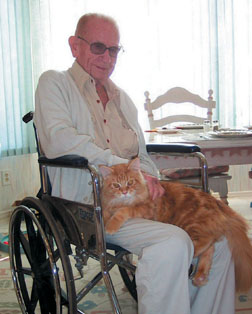At the University of Georgia, 29 volunteers lined up to foster cats from one of two area shelters.
All the cats had deworming, spaying/neutering, vaccinations, microchipping, and treatment for external parasites. Supplies like food and litter were provided, and health checkups were done via survey at one, four, and 12 months as well as monthly vet checks.
By the four-month mark, loneliness markers were down for all the participating seniors. And, at the year’s end, 95% of the people opted to adopt their foster cats.
The study took place during the pandemic when many people were isolated, and this study emphasizes the importance of pets in making people’s lives better at any time. In addition, having the costs of pet care covered made it easier for many seniors, who are often on limited incomes, to welcome a cat into their lives. Shelters and rescues may want to consider financial support and lower or no adoption fees for qualified seniors.
The results of this study are consistent with the anecdotal benefits seen in the Cornell Feline Health Center’s “Cats for Comfort” program (http://tinyurl.com/CornellSeniors).
Sanderson, SL, et al. The Impact of Cat Fostering on Older Adult Well-Being and Loneliness: A Feasibility Study, The Journals of Gerontology: Series B, Volume 79, Issue 1, January 2024




